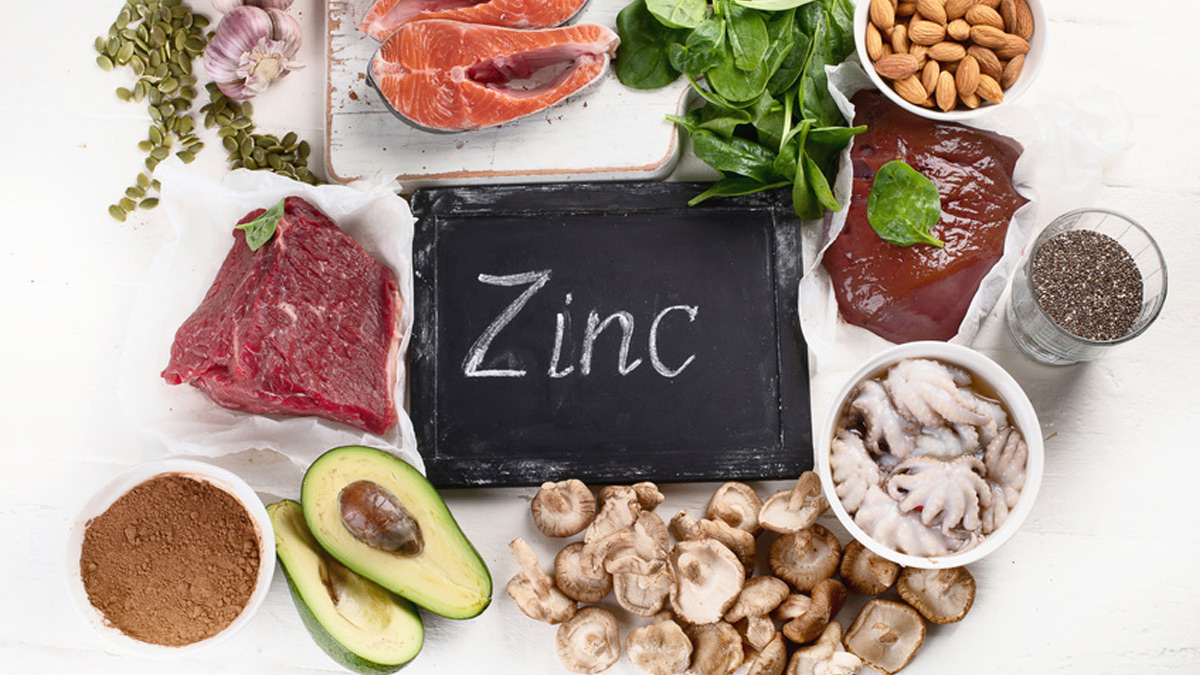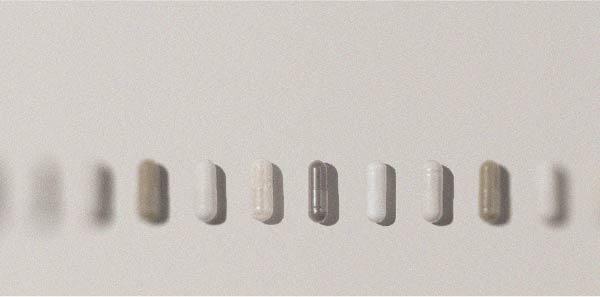All you need to know about zinc supplements!
Supplementing with iron, magnesium, calcium and potassium is perhaps more common than supplementing with zinc...

What is zinc? What is its role in the body?
Zinc is a trace element which is essential for hundreds of reactions that take place in the body. It is also necessary for the body’s defenses and for maintaining healthy bones, skin, hair, nails and vision, as well as for mental function. In addition, it supports normal fertility and reproduction.
What are the body’s requirements for zinc?
Despite its importance to health, zinc cannot be stored by the body and therefore needs to be ingested daily from the diet, and if necessary, from zinc supplements. Needs can vary depending on several factors including gender, age and weight, as well as dietary intake of phytates. These are compounds found in certain plant-source foods which prevent zinc from being absorbed by the body. In 2014, the European Food Safety Agency (EFSA) established the following reference values for average zinc requirements:
- 7.5-11mg/day for males over 18;
- 6.2-8.9mg/day for females over 18.
Note: recommended daily amounts can vary depending on country and dietary habits.
What risks are posed by a deficiency in zinc?
A shortfall in zinc can have a negative impact on numerous physiological functions. Fatigue, vision problems, repeated infections, skin problems (dryness, acne, impaired healing, etc), brittle nails, and hair loss are among the symptoms of a lack of zinc. It can also affect fertility, particularly by reducing sperm count.Who is at risk?
Everyone needs a daily intake of zinc but some studies suggest that, for various reasons, a third of the world’s population does not consume enough of this trace mineral. Vegetarians and vegans are at particular risk here because zinc is primarily contained in meat and seafood. Zinc requirements also increase at certain stages of life. During pregnancy, for example, it is even more important to consume enough in order to ensure the healthy development of the baby. Finally, intestinal absorption of nutriments can be affected by several factors. Older people, those suffering from intestinal problems and alcoholics are particularly vulnerable to zinc deficiency.
What are the benefits offered by zinc supplementation?
Numerous scientific studies support the benefits of taking zinc supplements. Following analysis of various findings, health authorities have moreover recognized a number of health claims made for zinc supplementation. It appears to support the following functions:
- protein synthesis;
- normal DNA synthesis;
- cell division;
- normal metabolism of food, carbohydrates and fatty acids;
- normal metabolism of vitamin A ;
- normal acid-base metabolism;
- normal mental function;
- normal fertility and reproduction;
- maintenance of bones;
- maintenance of skin, hair and nails;
- maintenance of normal male reproductive hormone concentration in the blood;
- normal vision;
- normal immune system function;
- protection of cells against free radicals.
Which zinc supplement should you choose?
There are two possibilities: a highly-bioavailable form such as zinc orotate, or an enhanced combination product such as MultiMineral Complex. Nowadays, zinc supplements are not only taken to prevent or correct deficiency, but also to capitalise on the many benefits offered by this trace-element. Immunity, antioxidant defense, vision, skin … alongside these previously-mentioned virtues, the latest research suggests that supplementing with zinc may also help fight age-related macular degeneration (AMD), treat the common cold and even stop diarrhea.
References
- Mokhber-Dezfuli N, Saeidnia S, Gohari AR, Kurepaz-Mahmoodabadi M. Phytochemistry and pharmacology of berberis species. Pharmacogn Rev. 2014;8:8.
- Chen W, Miao YQ, Fan DJ, et al. 2011. Bioavailability study of berberine and the enhancing effects of TPGS on intestinal absorption in rats. AAPS PharmSciTech 12: 705–711
- Tan XS, Ma JY, Feng R, et al. 2013. Tissue distribution of berberine and its metabolites after oral administration in rats. PLoS One 8: e77969.
- Imenshahidi M, Hosseinzadeh H. Berberis Vulgaris and berberine:an update review. Phytother Res. 2016;30:1745–1764.
- EFSA opinion reference 2010;8(10):1734
- EFSA opinion reference 2010;8(10):1747
- EFSA opinion reference 2011;9(6):2207
- Feng R, Shou JW, Zhao ZX, He CY, Ma C, Huang M, et al. Transforming berberine into its intestine-absorbable form by the gut microbiota. Sci Rep. 2015;5:12155.
- Hu, Y., and Davies, G.E. 2010. Berberine inhibits adipogenesis in high-fat dietinduced obesity mice. Fitoterapia, 81(5): 358–366. doi:10.1016/j.fitote.2009.10. 010. PMID:19861153.
- Zhang, M., Lv, X., Li, J., Meng, Z., Wang, Q., Chang, W., et al. 2012. Sodium caprate augments the hypoglycemic effect of berberine via AMPK in inhibiting hepatic gluconeogenesis. Mol. Cell. Endocrinol. 363(1–2): 122–130. doi:10.1016/j. mce.2012.08.006. PMID:22922125.
- Chang, W., Chen, L., & Hatch, G. M. (2015). Berberine as a therapy for type 2 diabetes and its complications: From mechanism of action to clinical studies. Biochemistry and Cell Biology, 93(5), 479–486. doi:10.1139/bcb-2014-0107.
Keywords
3 Days
Order was shipped on time and packaged…Wonderful Jobs!
Order was shipped on time and packaged excellently.
DMHoge
9 Days
great products and prices
great products and prices
Marie
15 Days
Easy to navigate site
Easy to navigate site, had what I was searching for, good price. easy order-check out
James Tucker
21 Days
My skin is clearing up nicely!
Pretty good for my skin so far.
Christian
24 Days
The new packaging is excellent
The new packaging is excellent - finally! No more squashed boxes and torn envelopes.
GORAN
24 Days
Great Product
Great Product
Larry Garrett
29 Days
Quick shipping
Quick shipping; good price. No issues!
Mary McCarty
30 Days
Thr product is very good and is helping…
Thr product is very good and is helping me on my health. Then is always on time
LUGO Luz
33 Days
Buying was fine
Buying was fine. I had problems with the website not recognizing my login info, and had to call to get it fixed. Other than that, everything was good.
David S. Clark
33 Days
Your super maca and super ginseng are…phenomenal
Your super maca and super ginseng are phenomenal supplements that compliment each other when taking them together. Fantastic feeling of well-being and lots of mid day energy without the crash.
Keith Mason
36 Days
I have had amazing results with every…
I have had amazing results with every supplement I've purchased. I am extremely satisfied with this company
kirstin Torres
36 Days
Fine products
Fine products . They are on the leading edge of online supplements. The only issue -so far-is they sometime run out of subscription items.
Jason Argos
38 Days
The ordering process is very user…
The ordering process is very user friendly and the products always come in a timely manner.
CARTER Rhonda
40 Days
The price for Dr
The price for Dr. Pero's AC-11 is reasonable and in line with his views. (my former colleague). Keep it pure.
CAMPBELL Clayton
42 Days
Right on every time.
Right on every time.
Arthur Nicholas




